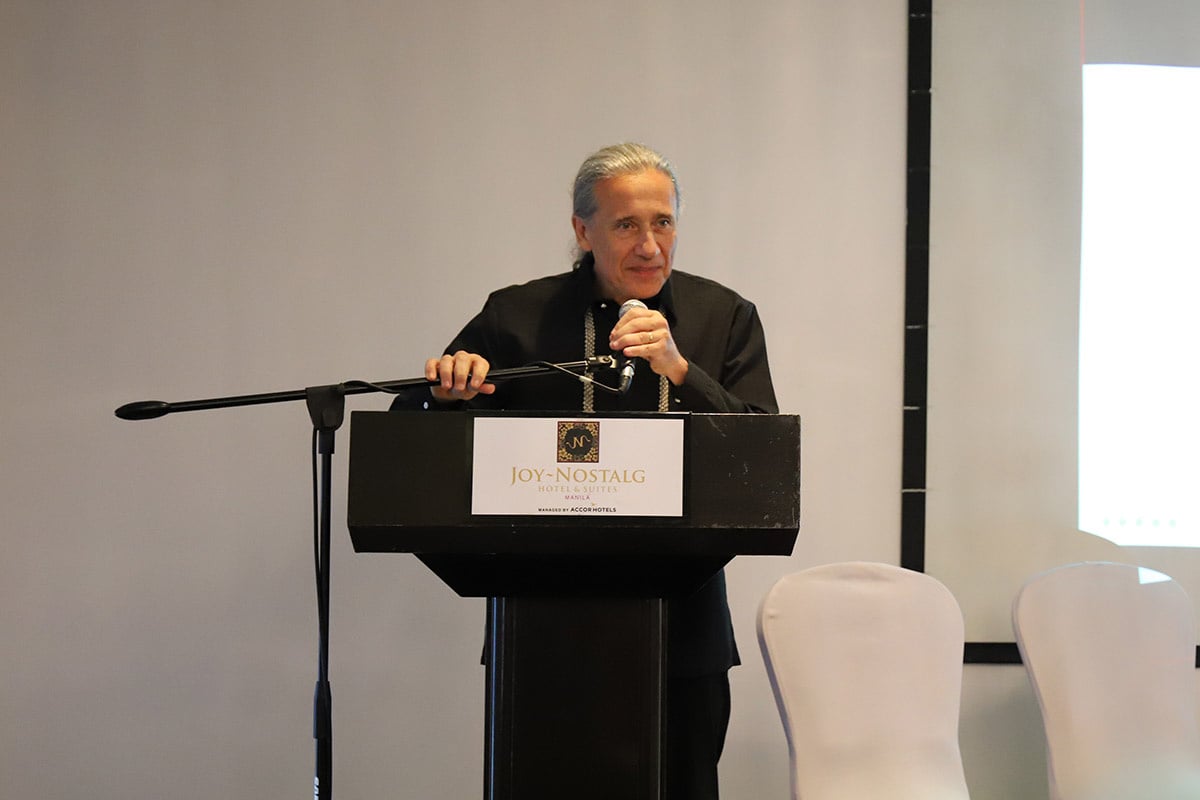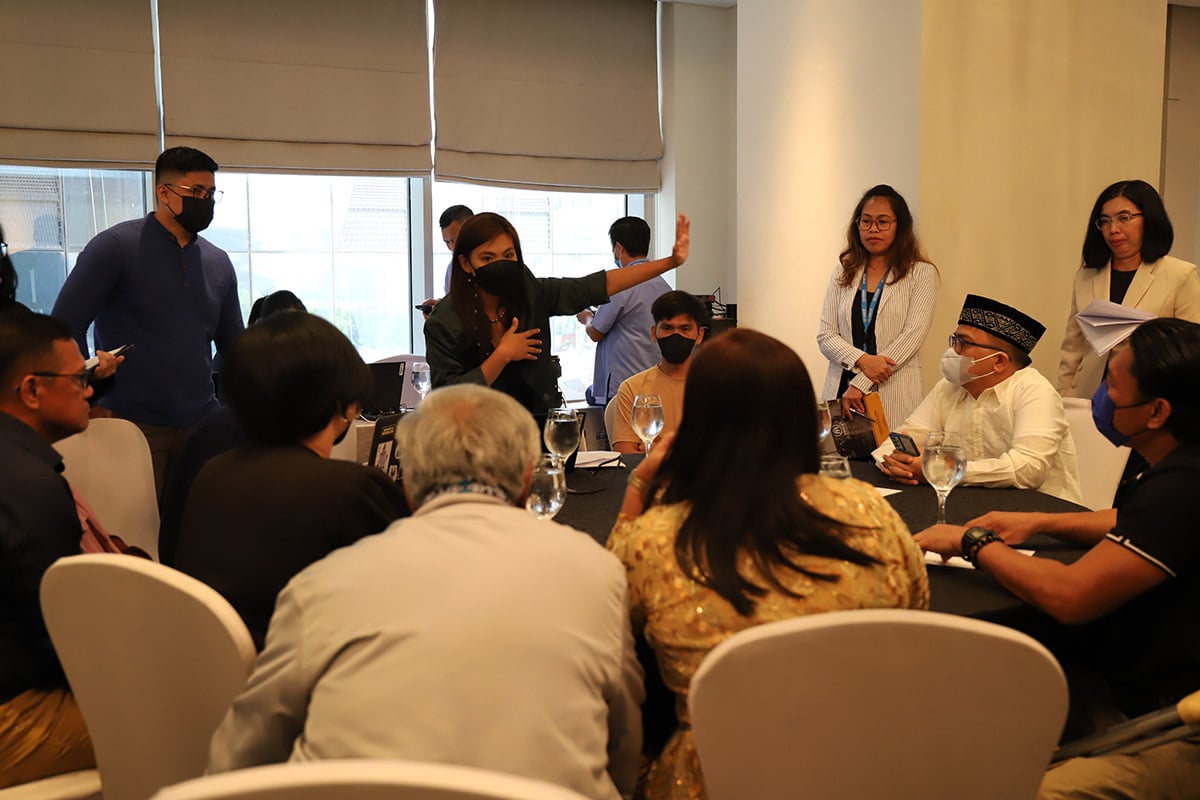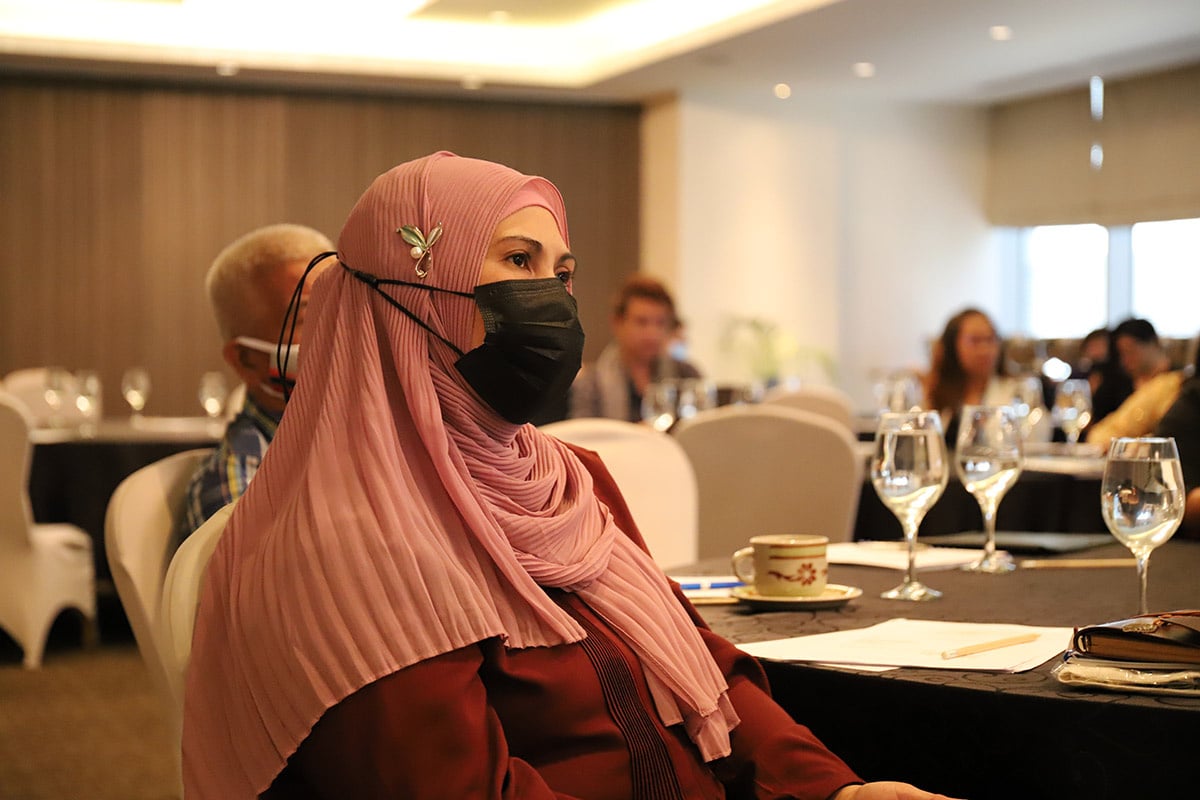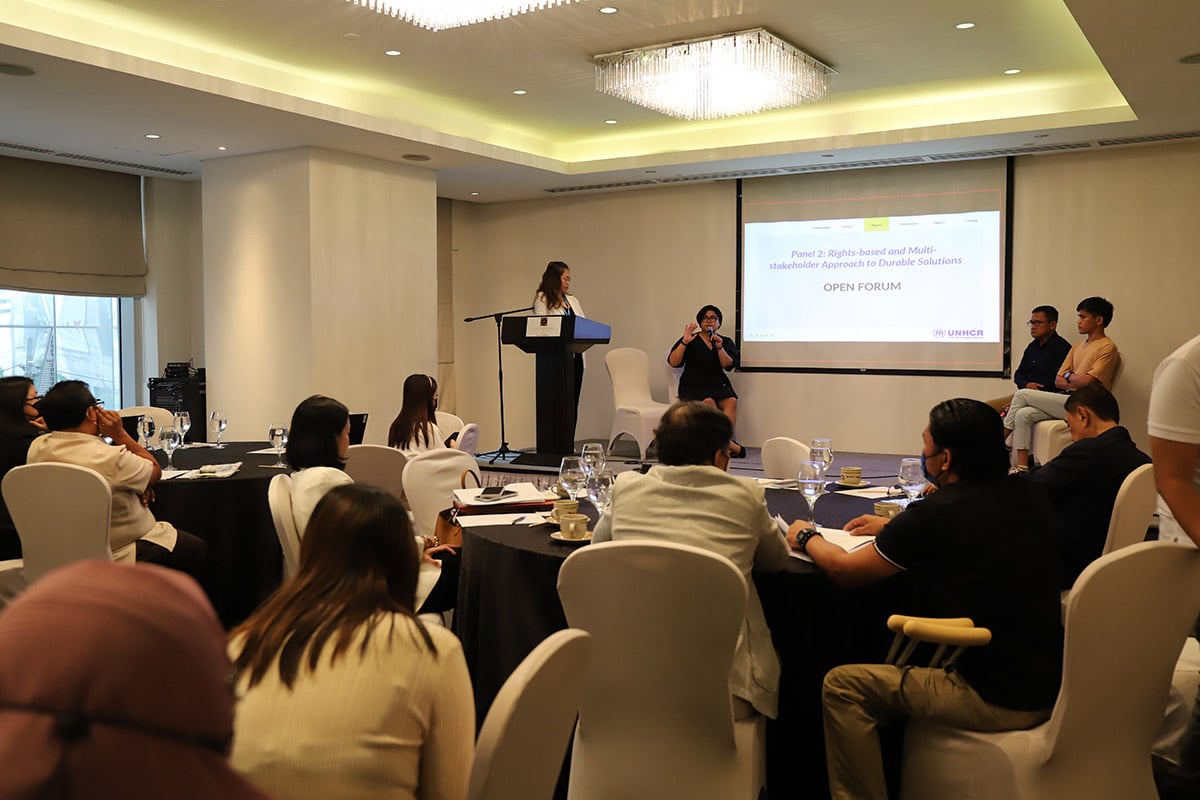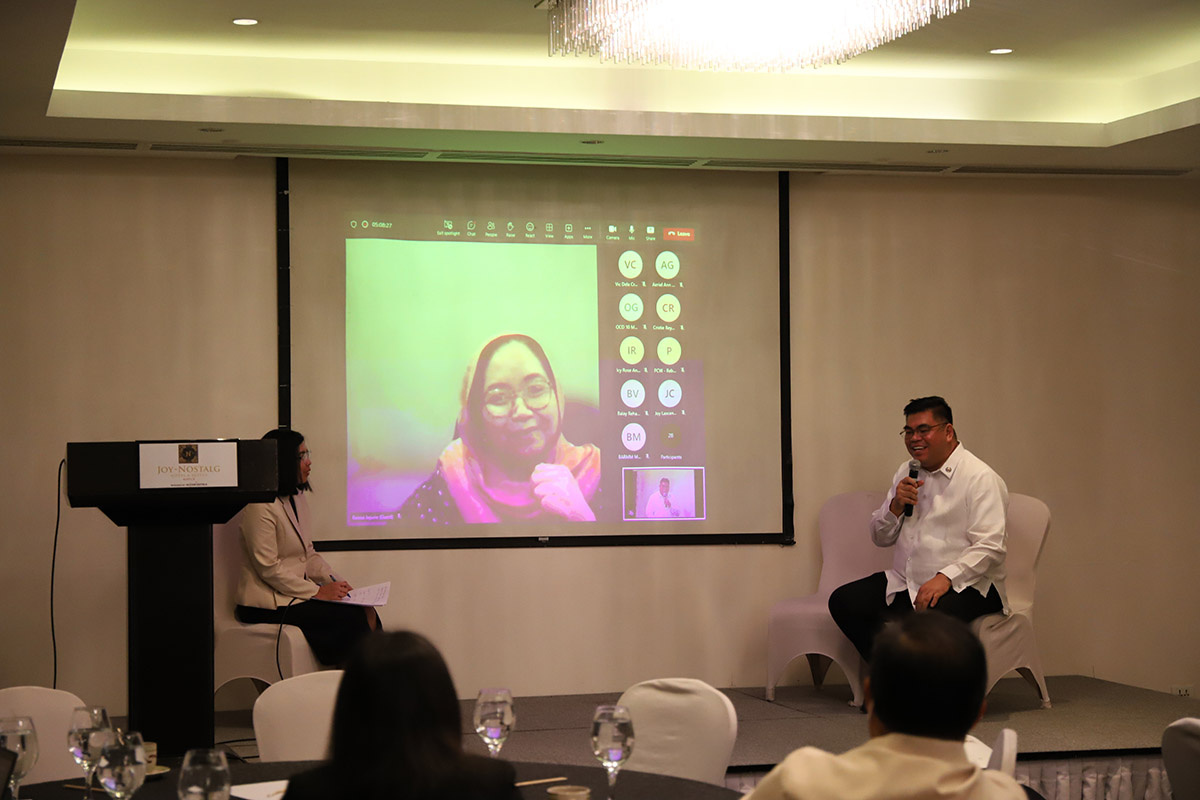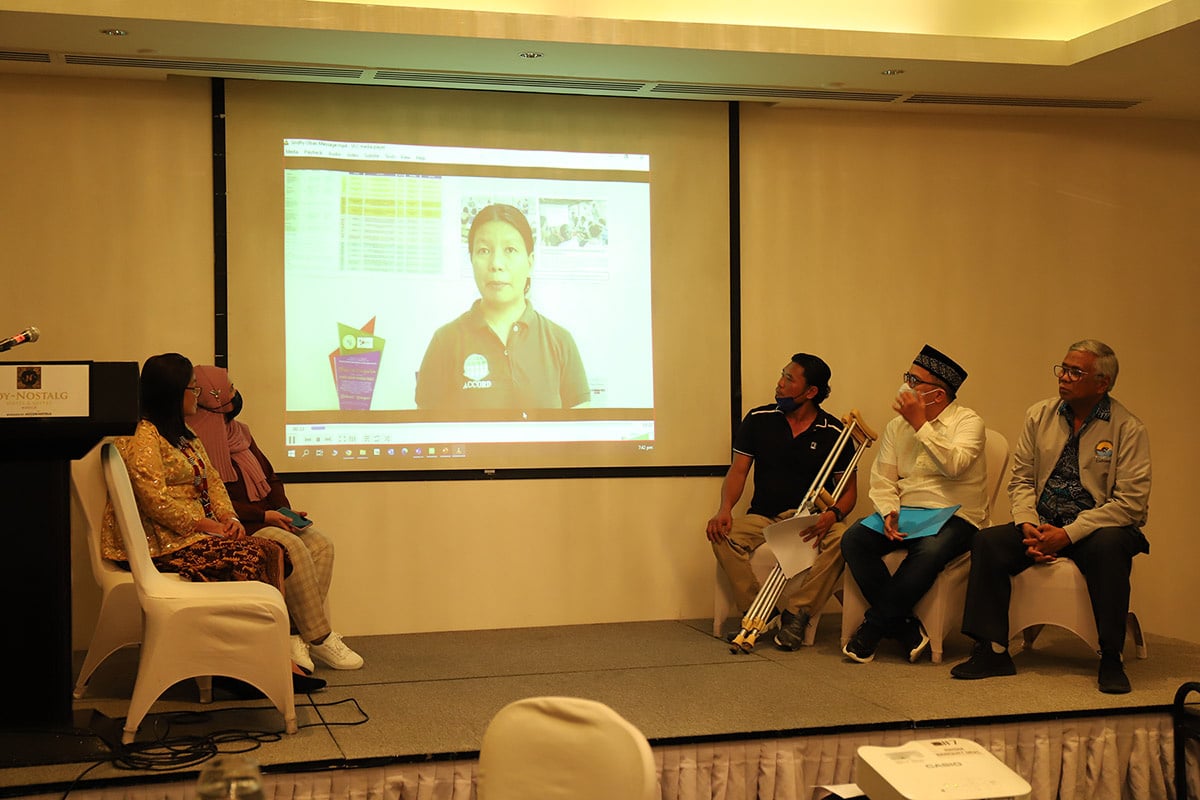UNHCR celebrates 25th anniversary of UNGPID, calling for the enactment of laws to ensure protection of IDPs
UNHCR celebrates 25th anniversary of UNGPID, calling for the enactment of laws to ensure protection of IDPs
On 17 April 2023, UNHCR Philippines held a national conference to celebrate the 25th anniversary of the United Nations Guiding Principles on Internal Displacement (UNGPID) and call for its localization into laws that protect, promote, and uphold the rights and achieve durable solutions for internally displaced persons (IDP) in the Philippines.
The passage of a rights-based legal frameworks is critical as the crisis of internal displacement is recurring, cyclical, and continues to impact the most vulnerable communities. As of November 2022, more than 158,000 individuals remain displaced in Mindanao due to armed conflict, violence, and natural hazards. Globally, more than 53 million people are internally displaced.
The national conference, which was held in parallel to the global Special Commemorative Event of the UNGPID anniversary, brought to light the significant strides that have been undertaken to address internal displacement. Attended by representatives from internally displaced and host communities, the Government, human rights institutions, the United Nations Humanitarian Country Team, the Protection Cluster in the Philippines, and civil society organizations, the event built on recent developments and provided a venue for an exchange of good practices and lessons learned on IDP bills and policies as well for IDP and host communities to share their own experiences and insights.
“I hope the injustices that we experienced will be resolved with this IDP Bill,” said Ulah Ganoy, who has been forced to flee his home in Maguindanao due to armed conflict. As a member of the LGBTIQ+ community living in forced displacement, Ulah hopes for “permanent long-term solutions to the problems faced by IDPs”, including access to education and protection from gender-based violence and discrimination.
The UNGPID is seen as a significant human rights instrument in terms of ensuring protection of IDPs as it defines who an IDP is, outlines the principles for duty bearers, and sets forth the international standards for addressing internal displacement. It has become the cornerstone on IDP protection and has served as a key reference in regional and country-level frameworks. As of October 2022, 46 countries had at least an IDP law, policy or strategy/action plan on internal displacement, while 14 countries had laws on internal displacement. If the IDP Bills are enacted into laws, the Philippines will be the first country in Southeast Asia to do so.
“The Bill acknowledges the primary duty of the State to provide protection and humanitarian assistance to IDPs. It ensures that IDPs shall enjoy in full equality and without discrimination the same rights and freedoms as any other Filipino”, said Hon. Bienvenido Abante Jr., author of House Bill 5268. In addition, Hon. Abante Jr., humbly appealed to the Senate to enact the same measure with a greater sense of urgency as the IDPs can wait no longer and should suffer no more.
Consistent with the UNGPID, significant steps have already been undertaken to address internal displacement over the years. The Philippines is one of the countries in focus in the Global Report on Law and Policy on Internal Displacement due to its policies and laws addressing internal displacement, and ongoing endeavors to pursue legal frameworks for, by, and with IDPs at the national, regional (Bangsamoro Autonomous Region in Muslim Mindanao or BARMM), and local levels.
Minister Raissa H. Jajurie of the BARMM Ministry of Social Services and Development and author of Bill No. 32 said that “the Bill takes a whole-of-society and Government approach to ensure that the response and resolution to internal displacement is human rights-based.” In addition, she highlighted “the need to continue raising awareness among the general public while engaging IDPs and host communities as rights-holders and other government agencies as duty-bearers.”
With all of these initiatives, the Philippines has been identified as one of the 16 priority countries to pilot the implementation of the UN Secretary-General’s Action Agenda on Internal Displacement, with the aim of creating global political momentum to join efforts and capacity in the search of durable solutions to IDPs.
“Today is a special day for the humanitarian community and for everyone who is working to leave no one behind. It gives us the opportunity to translate Guiding Principles into concrete Action. Myself and the UN Country Team in the Philippines remain fully committed towards durable solutions for IDPs,” said Gustavo González, Resident Coordinator and Humanitarian Coordinator of the United Nations in the Philippines.
Meanwhile, Maria Ermina Valdeavilla-Gallardo, Head of National Office of UNHCR Philippines, highlighted the importance of recognizing “the evolving nature of internal displacement, including the growing impact of climate change, and the need for innovative, inclusive, and holistic approaches to address these new challenges.” She called for the continued “inclusion and participation of IDPs and host communities themselves in decision-making processes that affect their lives.”
To sustain the momentum in enhancing policy and legal frameworks, UNHCR, with support from the members of the Protection Cluster in the Philippines, and in coordination with its project partners, the Philippine Legislators' Committee on Population and Development (PLCPD) and the Consortium of Bangsamoro Civil Society (CBCS), will remain committed in building on past learnings, improving key achievements, and pursuing the passage of the IDP bills.
*****
ABOUT UNHCR
The United Nations High Commissioner for Refugees (UNHCR), the UN Refugee Agency, is a global organization dedicated to saving lives, protecting rights and building a better future for people forced to flee their homes because of conflict and persecution. We lead international action to protect refugees, forcibly displaced communities and stateless people. We deliver life-saving assistance, help safeguard fundamental human rights, and develop solutions that ensure people have a safe place called home where they can build a better future. We also work to ensure that stateless people are granted a nationality. We work in over 130 countries, using our expertise to protect and care for millions.
In the Philippines, UNHCR has maintained a presence for over 40 years, working on three pillars: providing durable solutions to refugees, ending and reducing statelessness, and empowering displaced families. UNHCR leads the Protection Cluster within the context of the Humanitarian Country Team and provides support to the Government-led Protection Cluster both at the national and sub-national levels. By working with local and national stakeholders, UNHCR advocates for the passage of an IDP protection law both at the national and BARMM level to identify, prevent, and respond to internal displacement in accordance with the UN Guiding Principles on Internal Displacement. With a clear legislation framework, this will ensure that IDPs will be better protected and their rights are upheld.
EFFORTS UNDERTAKEN TO ADDRESS INTERNAL DISPLACEMENT CONSISTENT WITH THE UNGPID
- In 2010, the Inter-Agency Standing Committee published a framework on Durable Solutions for Internally Displaced Persons. This framework guided UNHCR to perform its mandate through protection by presence and protection mainstreaming, supporting and reinforcing national mechanisms and responses to the needs of internally displaced people.
- In 2018 and to mark the 20th anniversary of the UNGPID, the Special Rapporteur on the Human Rights of IDPs, the United Nations High Commissioner for Refugees (UNHCR), and the United Nations Office for the Coordination of Humanitarian Affairs (OCHA) launched GP 20, a plan from 2018 – 2020 which aims to “to reduce and resolve internal displacement through prevention, protection and solutions for” IDPs through a multi-stakeholder approach.
- Following the establishment of the High-Level Panel on Internal Displacement in 2019, a Report emphasizing the need for preventive action and durable solutions through a whole-of-displacement approach was developed. This became the basis for the UN Secretary-General’s Action Agenda on Internal Displacement in 2022.
CURRENT LEGISLATIVE MEASURES TO ADDRESS INTERNAL DISPLACEMENT
- In the 19th (current) Congress, three Senate Bills (594, 870, and 1243) are pending in their respective Committees
- The House of Representatives, through its Committee on Human Rights, approved the IDP bills (House Bills 2974, 4579, 5268) last 14 March 2023. These will be subject to further styling and amendment, with House Bill 5268 as the primary bill. Another bill (House Bill 7680) has been filed on 16 March 2023.
- The Regional Province of Southern Leyte issued Resolution No. 1129 in 2022 to support House Bill 5268.
- Within BARMM, two (2) bills (Bill 32 and 20) have been filed. These are currently on the 2nd stage of the 2nd
- Complementary to these efforts, 11 ordinances in Maguindanao, Lanao Del Sur, and Sulu have issued policies on the protection of IDPs.
- Durable solutions action plans have also been developed in BARMM, Regions IX, X, XI, XII, and Caraga following workshops and consultations held with IDPs, host communities, and relevant stakeholders in 2022.
- Discussions are also ongoing in the lead up to the development of a Durable Solutions Strategy within the UN Country Team in the Philippines.
- These endeavors are aligned with the Philippine Development Plan 2023 - 2028, as approved by Executive Order No. 14 series of 2023, which includes IDPs in chapters pertaining to enhancing social protection systems (Chapter 3) and ensuring peace and security (Chapter 13).
For more information, please contact:
UNHCR Philippines – External Relations
(02) 88172398



